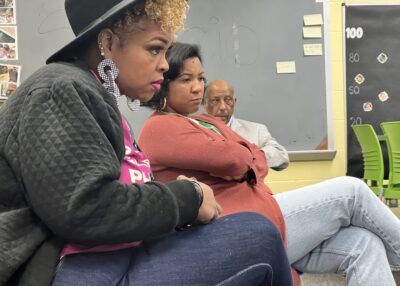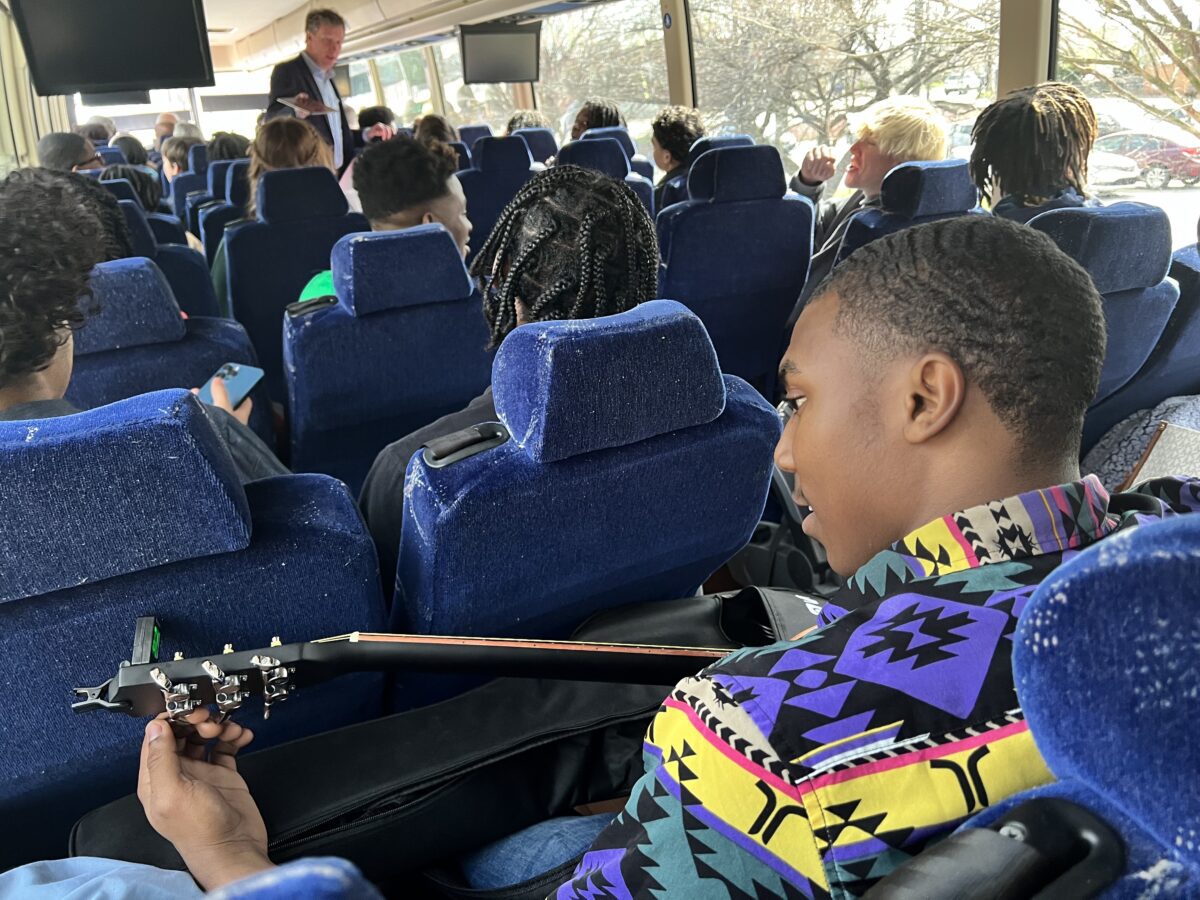

It’s early morning in Elizabeth City as about 20 students bring a burst of excitement to the Elizabeth City-Pasquotank Public Schools (ECPPS) central office building. Outside stand five of the district’s seven school board members. They’re joined by the district’s superintendent, two of his central office leaders, three principals, the mayor of Elizabeth City, and the local NAACP president.
A large chartered bus idles in the parking lot and the smell of Bojangles biscuits fills the air.
This is the scene as the large delegation from ECPPS prepares for a two-day journey they call an “inspiration visit.”
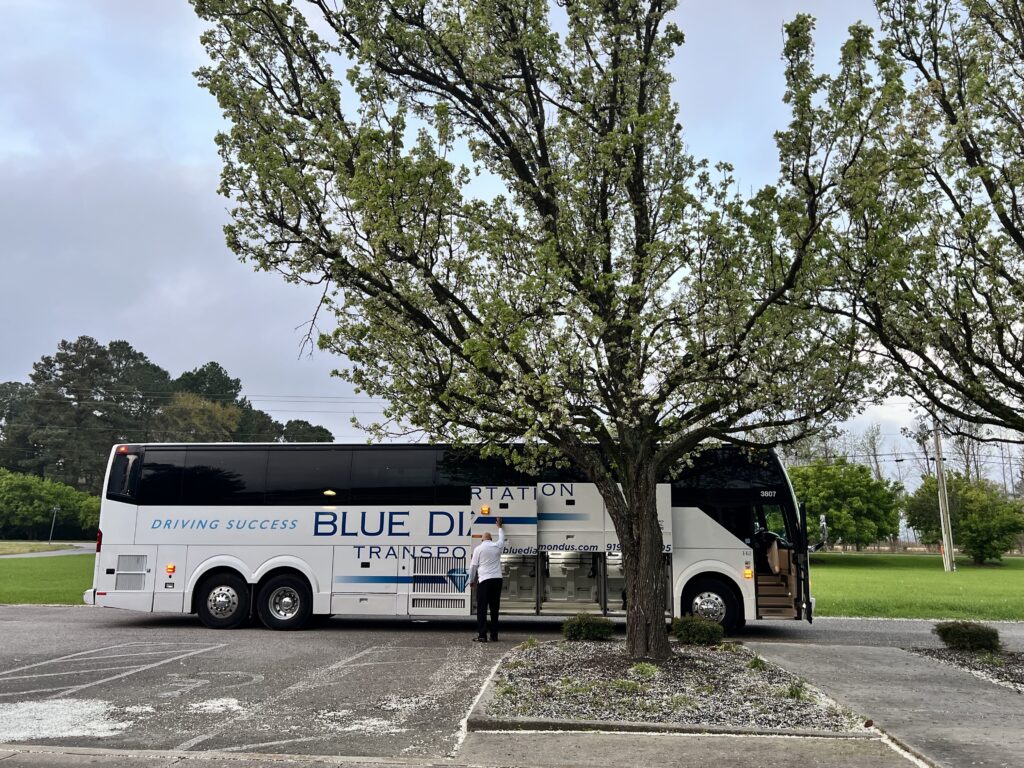

Our public schools are constantly evolving
Most of the adults on the trip are graduates from ECPPS. All five of the local school board members went to Northeastern High School, some overlapping during their time there in the 90s. When these adults attended school, ECPPS was a jewel of the Northeast, they said. Other districts would make inspiration visits to study them.
“The reality is our schools don’t work for every kid,” Superintendent Keith Parker said. “It works for some kids sometimes, but they don’t work for every kid all the time.”
The local school board named Parker as superintendent in July. Since taking office, one of his priorities has been to find things that are working in other places. He calls them inspiration visits, and he insists that students be a part of them.
The district has traveled out of state to Washington, D.C. and Virginia. And it’s taken visits within the state, like with this bus trip to Greensboro.
“We’re going to do something different,” Parker said. “And we may not know what that is yet. We may not be successful the first time. But I can tell you we’re making a commitment in Elizabeth City Pasquotank Public Schools to do something different.”
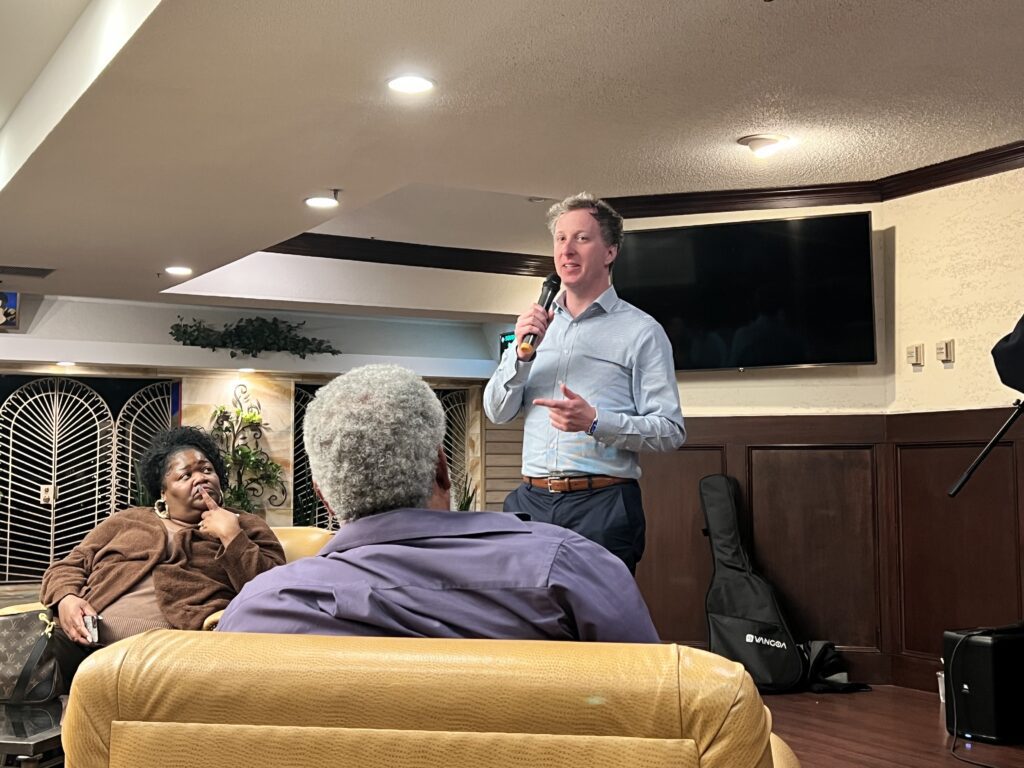

Answering the calls for change
When Pam Pureza and Sharon Warden were elected to their first term on the school board, back in 2014, the community had gone from innovative and close-knit to calling for change.
Leadership turnover stunted efforts in 2015 when the district’s superintendent resigned two weeks before the start of classes. The interim who followed resigned about a year later.
“What we lacked was the vision of what change would look like,” Northeastern Principal Amy Fyffe said.
Next, the board hired Catherine Edmonds. She was respected in the community, supported change, and could work methodically. In less than two years, however, she was hired by the N.C. Department of Public Instruction.
Before the school board could formulate its next leadership plan, COVID hit.
“We had good-hearted people who wanted to make change,” Pureza said. “But we couldn’t catch a break.”
Now, with a young, energetic, first-time superintendent in Parker, the district is hoping to crystallize that vision for change. And it starts with clarifying what change looks like. That’s the purpose behind the inspiration visits, to come away with specific ideas to implement.
This particular inspiration visit, to UNC Greensboro and some surrounding schools, provided the opportunity to see a state-of-the-art esports arena. There, the university is finding ways to integrate learning with something a lot of students are already doing.
Finding ways to engage students better
UNC Greensboro established the 3,300-square-foot arena one year ago. It has a mix of gaming computers, consoles, a virtual reality system, and broadcast capabilities. Esports is a club at the university, allowing students to compete against other schools or stream their games on an online video platform called Twitch.
But the esports investment at UNC Greensboro goes much further than fueling professional gaming aspirations. Students learn about the Unreal platform for designing games or even making movies. They apply math skills, learn marketing strategies, and even incorporate English Language Arts – learning how to combine storytelling with game design.
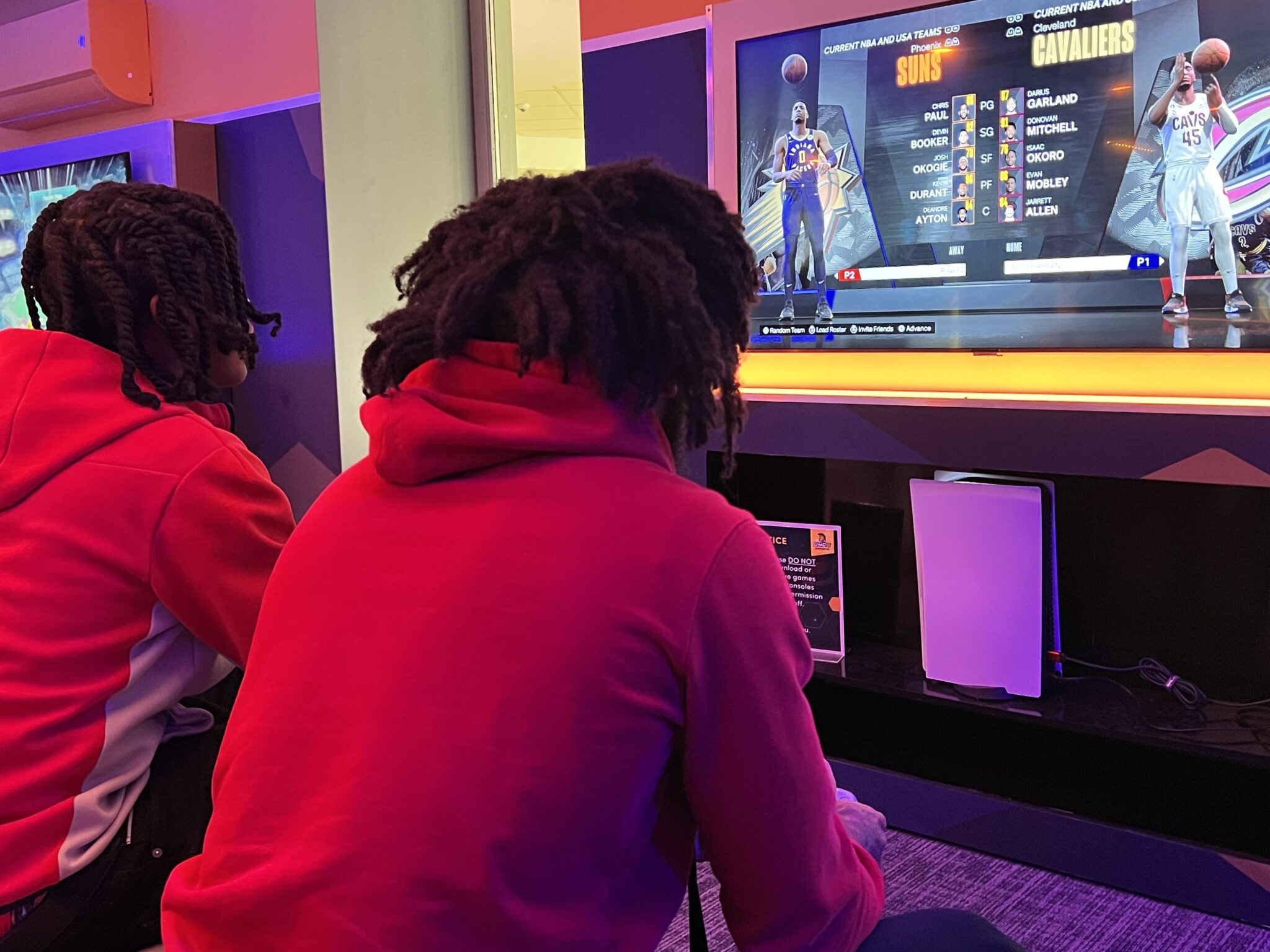

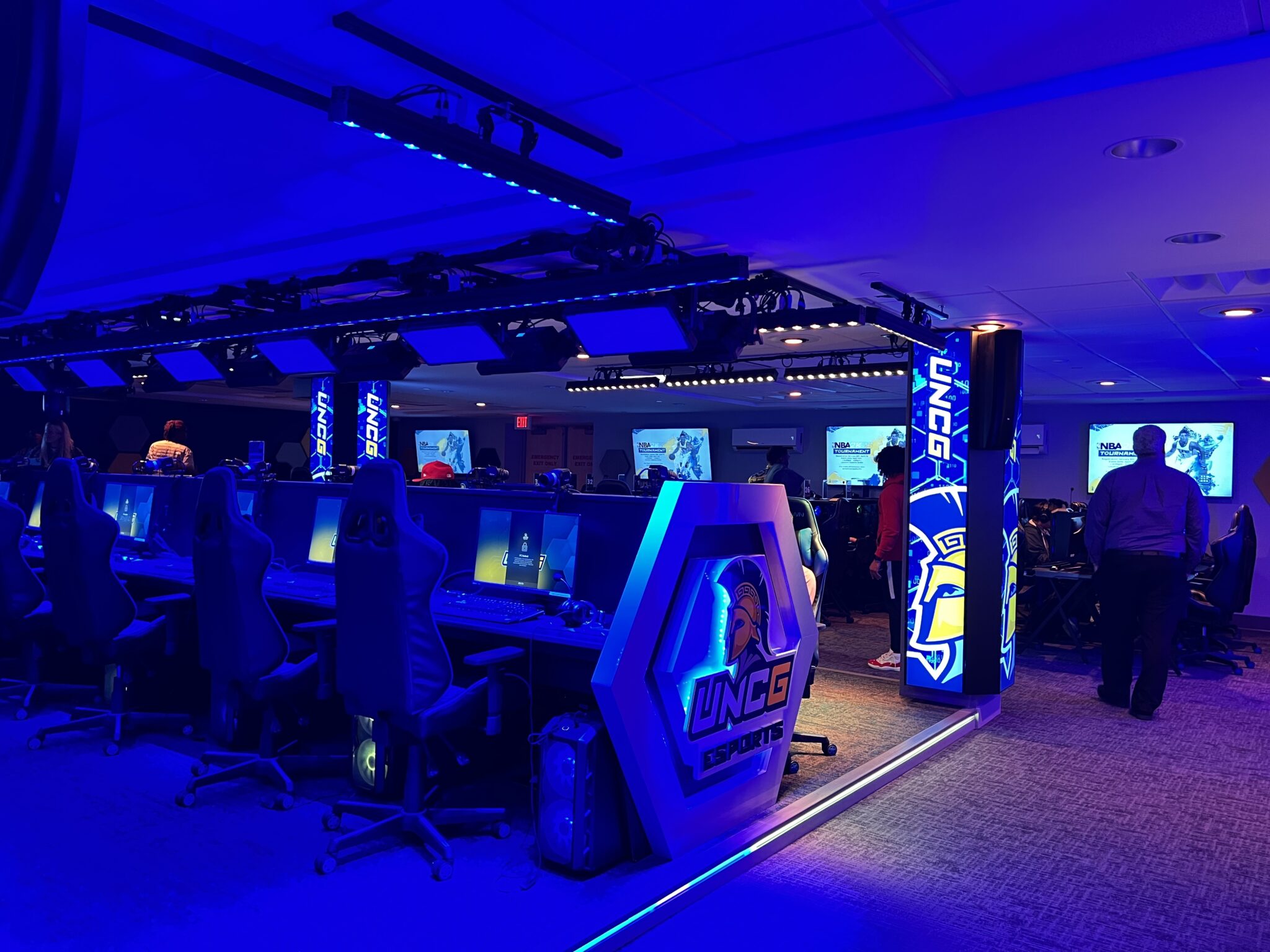

UNC Greensboro is helping to develop a curriculum that will teach all of these skills, and more, to high school students, and leaders of that initiative are talking to ECPPS about how adoption could work for them.
Later in the day, a group from SparkNC presented on the work it’s doing with 18 districts across the state, including ECPPS.
SparkNC launched in June as an initiative of The Innovation Project to promote careers in high-tech fields. With help from leaders in each of those districts, and from private business partners, the initiative is developing stackable modules to teach things like Artificial Intelligence, cybersecurity, esports and game development, and data analytics.
SparkNC helped pay for ECPPS’s inspiration visit, with the remaining funding coming from district budget. SparkNC is also funding learning labs in each of the 18 districts where students can work with learning facilitators who will help them navigate the modules and guide students as they explore their passions further.
It’s the kind of new learning model the district wants.
“We know what needs to change,” said Fyffe, who added that the sage-on-a-stage approach of teachers lecturing was causing students to check out. “The classroom had to change. The way the teacher is has to change. It’s not about how should we teach. It’s how should they learn.”
Inviting students to lead the way
That’s why the 21 students are on the trip. This is their future, district leaders said, so they need to help design the learning that will prepare them for it.
These students listened and engaged. They took the role as ambassadors of their schools and community seriously.
“I’m proud of you and and just want to tell you that you’re the reason why the adults in the room have devoted their lives to public schools, to try to change that for you,” Parker said as the group gathered at night to reflect on the day’s events.
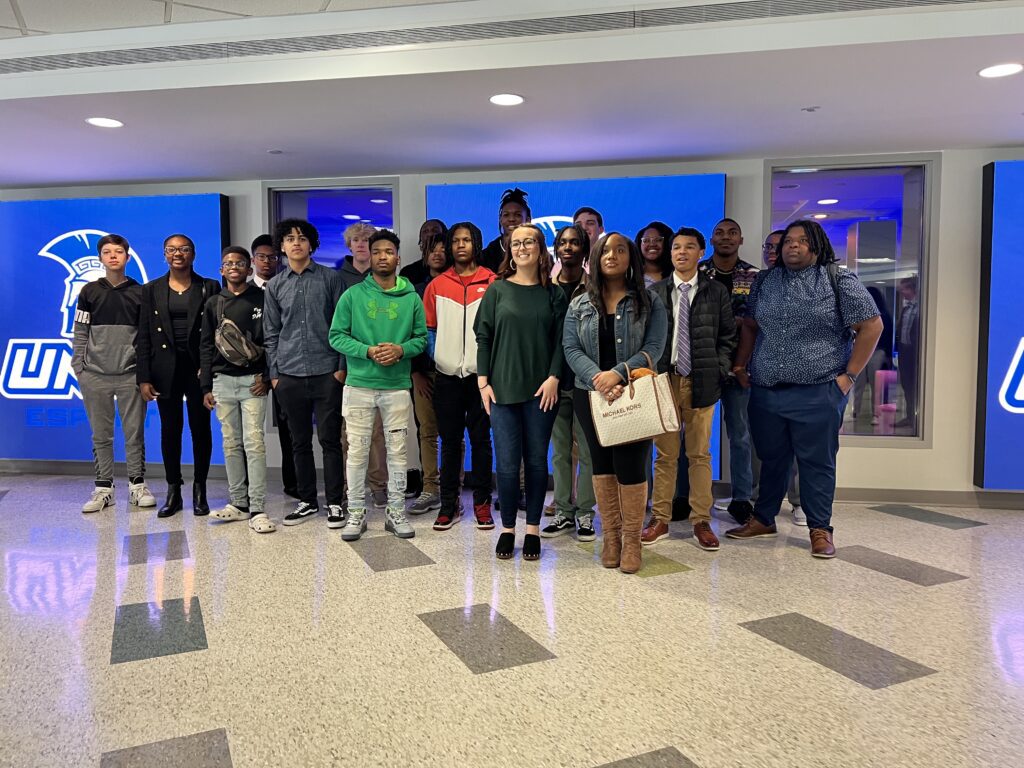

After awe-inspiring musical performances from seniors Tyler and Ciasia, students huddled at the front of the room for a panel discussion led by two of their peers. The adults sat in chairs scattered about the lobby and listened.
The students, it turns out, had already given a lot of thought to changes they want to see in their education experiences. A lot of what they said matched what the adults were figuring out during the trip.
The students talked about wanting their education to apply more directly to their interests and career aspirations. They asked for hands-on learning – conducting experiments in science classes rather than writing essays or tests. They want more arts education – like music theory classes and direct instruction for creating visual arts.
Students also asked for help building relationships. The pandemic school closures changed them, they said. It’s made spending time together – with their peers and adults – more important to them.
“But we have no downtime – it’s just class after class after class,” one student said.
“And it’s a lot more homework,” another added.
“I feel like now, instead of making students accommodate to the school, I feel like the school should sometimes now accommodate the students because of how much we’ve changed over the years,” said Gracie Wooten, a senior at Northeastern and an advisor to the school board.
Fruit of the visits, and seeds for change
This district’s search, in and of itself, is testament to our public schools persistent desire to be better.
But what comes of an inspiration visit is even more important. Students loved the esports program, for example, and believe it will make learning engaging but also help build more community – both among the student body and among peers they meet remotely over online gaming. The adults listened as students gave it their stamp of approval.
There’s some measures that will need to go before the school board, but the district is planning on adding esports teams at each of its two high schools, and it’s working on designing electives around the SparkNC learning labs and modules.
“Imagine if our schools look different and imagine if students found their hopes and dreams with us,” Parker said. “I think all those things can happen. And I think it’s possible, and I think the energy and excitement we have right here in this room is going to be the thing it takes to change our schools.


